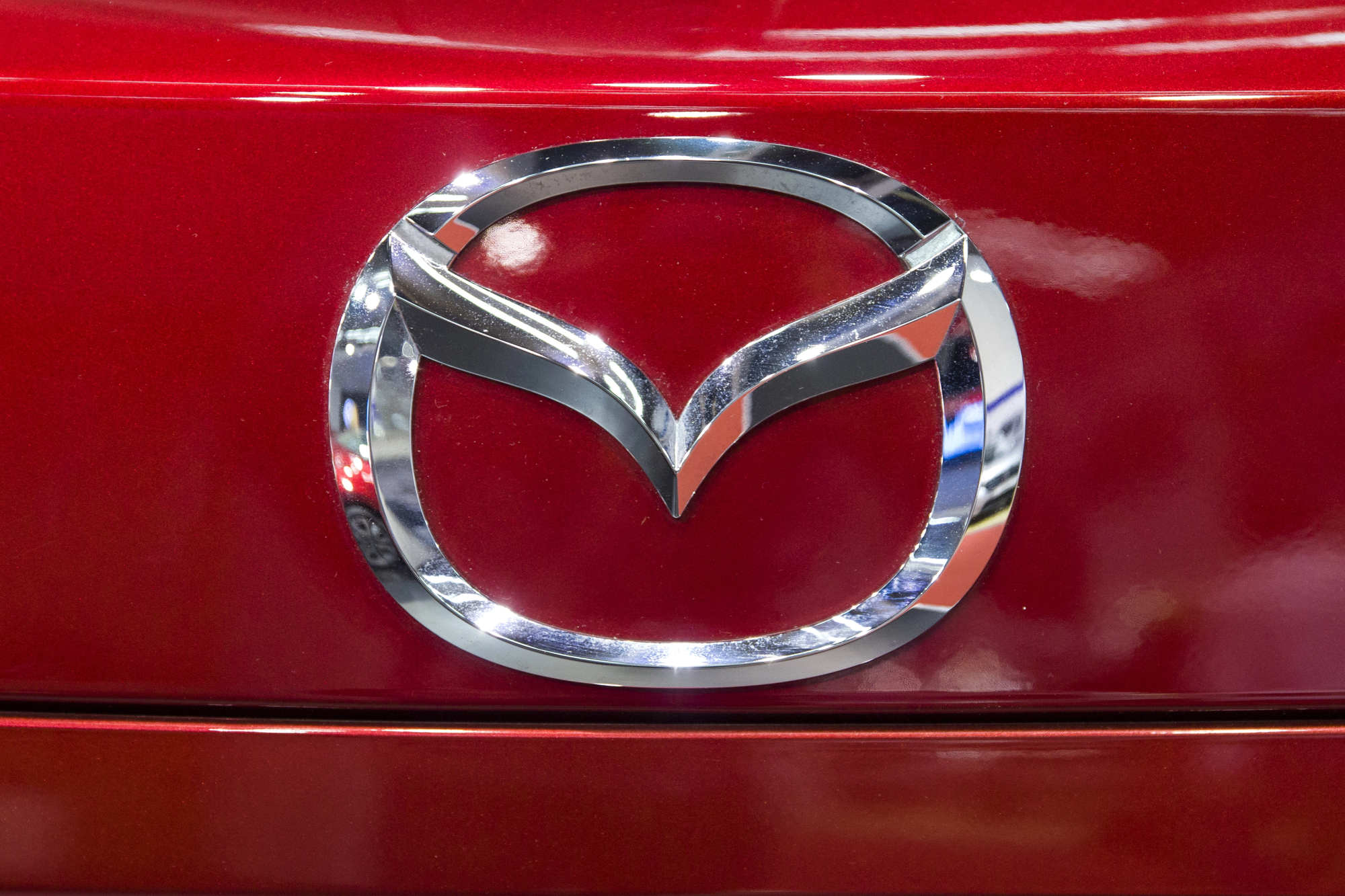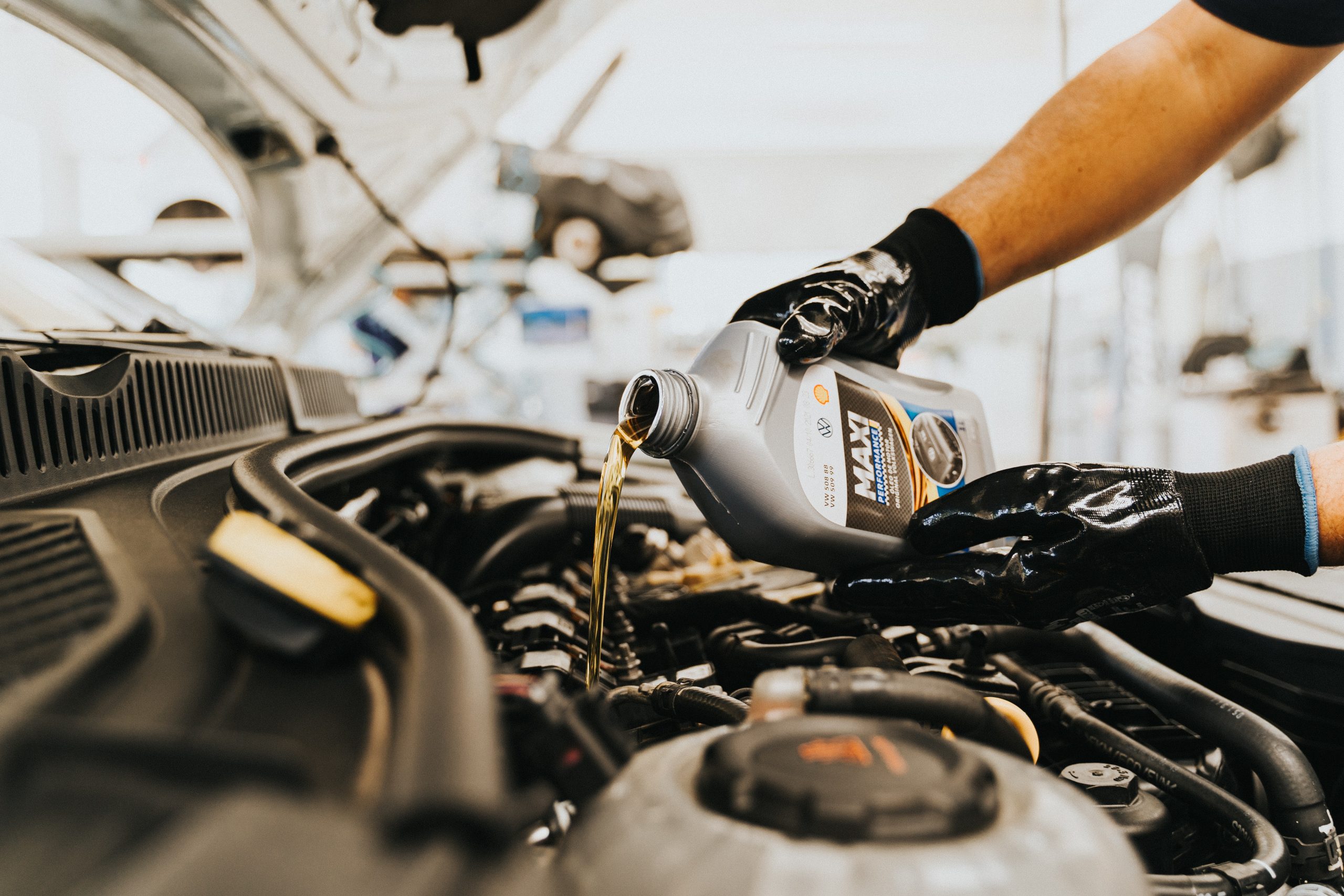how to fix car acceleration problems


Common Causes of Car Acceleration Problems
Car Acceleration Issues: Root Causes and Fixes
Car acceleration problems can occur due to various underlying reasons. These issues can severely affect your car’s performance, which makes it crucial to identify the root cause of the problem. Here are some common causes of car acceleration problems:
- Clogged Air Filter: A clogged air filter restricts airflow, which can cause the engine to perform poorly as it cannot receive enough oxygen. This issue often results in a decrease in acceleration.
- Faulty Spark Plugs: Worn or faulty spark plugs may lead to misfiring in one or more cylinders, causing rough idling and acceleration issues.
- Malfunctioning Catalytic Converter: A malfunctioning catalytic converter restricts exhaust flow, reducing engine power and leading to difficulties when accelerating.
Apart from these root causes, other factors such as faulty fuel injectors or a failing transmission could also contribute to acceleration issues. However, it is important to consult a professional mechanic who can diagnose the exact problem with your car.
It is essential to take care of your car’s maintenance needs regularly. To address some quick fixes for improving acceleration:
- Replace Air Filter: Replacing your clogged air filter can restore airflow and fix poor acceleration caused by this issue.
- Change Spark Plugs: Installing new spark plugs helps eliminate any misfires that could be inhibiting smooth acceleration.
- Clean or Replace Catalytic Converter: Cleaning or replacing a malfunctioning catalytic converter restores proper exhaust flow, thereby restoring lost power and improved accelerations
With these small yet affordable steps you can overcome mild car accelerations issues on time before they start getting severe leading into costly repairs down the line. Looks like your car has been on a fuel strike, time to unclog those pipes and get it back to work.
Issues with the Fuel System
To fix car acceleration problems with the fuel system, the section below provides a solution. By examining the common causes and solutions for clogged fuel filters and malfunctioning fuel pumps, you can better diagnose and repair issues with your car’s acceleration.
Clogged Fuel Filter
The restriction of flow in the fuel delivery system can be produced by an obstructed fuel filter. The fuel filter is essential in preventing impurities from entering the engine and hindering proper operation. This issue should be resolved promptly to avoid further engine damage.
A clogged filter may produce symptoms such as poor performance, stalling or misfires. Once detected, it is recommended to replace the fuel filter as part of regular vehicle maintenance. A dirty air filter may also cause strain on the fuel delivery system, causing similar symptoms.
It is crucial to maintain clean filters and avoid contaminated fuel to prevent this issue from occurring. Neglecting these simple actions could lead to costly repairs and possible downtime for your vehicle.
I once witnessed a coworker’s car struggling with acceleration and stalling at idle. After checking the usual suspects such as spark plugs and air flow, it was discovered that a severely clogged fuel filter was the culprit. After replacing the filter, his car regained its lost vigor and returned to optimal performance.
When your fuel pump acts up, it’s like a heart attack for your car – except instead of calling 911, you’re calling a tow truck.
Malfunctioning Fuel Pump
Fuel delivery system’s incapability to provide the appropriate amount and pressure of fuel to an engine causes its malfunction, which results in an array of issues. One such issue is the failure of a crucial component known as the Fuel Dispenser. The fuel dispenser plays a vital role in supplying an adequate amount of fuel throughout the engine at optimum pressure.
Issues with this component may lead to poor engine performance and, in some cases, multiple failures within the fuel system. An erratic or malfunctioning fuel pump typically indicates clogged fuel filters, corroded electrical connections or wiring, or low fuel pressure caused by faulty sensors.
It is essential to recognize the symptoms of a malfunctioning fuel pump, which often involves unusual noises like whining or humming coming from the fuel tank due to uneven supply; further symptoms include trouble accelerating or starting, engine stalling after it warms up, among others seen across various vehicle types.
A high-performance vehicle technician once diagnosed a BMW 750i with stalling troubles with its engine caused by a failing fuel pump. Upon replacement of the defective component and recalibration of sensors controlling speed and air-fuel mixture, this allowed for normal operation.
Why worry about the ignition system when you’re still trying to fuel up without spilling gas all over yourself?
Problems with the Ignition System
To fix acceleration problems with your car, delve into the section on Problems with the Ignition System, delving into Faulty Spark Plugs and Bad Ignition Coil as solutions.
Faulty Spark Plugs
When the ignition system malfunctions, it can be caused by a range of factors. One of these causes is when the electrodes of spark plugs wear out or become fouled with residue.
- Worn-out or dirty spark plugs can reduce fuel efficiency and cause problems with starting the engine.
- They can also affect engine performance, such as acceleration and idle speed.
- Faulty spark plugs may cause misfiring, which occurs when one or more cylinders in an engine fail to ignite and cause vibrations in the vehicle.
- This issue can damage other components like the catalytic converter if not fixed promptly.
- A correct diagnosis is necessary since other faulty parts may imitate the symptoms of faulty spark plugs.
It’s crucial to consult a skilled technician to check for electrical conductivity levels in your vehicle because plugs that are too loose or too tightly screwed into their sockets could prevent your ignition system from functioning correctly.
Finally, according to a recent study published on ScienceDirect by CarsGuide.au – “Faulty Spark Plugs are one of the leading reasons why engines fail.” A bad ignition coil is like a bad hair day for your car – it just won’t start no matter how hard you try.
Bad Ignition Coil
The malfunction of the ignition system can be caused by a deteriorating component, known as a Suboptimal Induced Charge Device (SIG). Here are some indications of why a SIG is faulty:
- Difficulty in starting the engine: A problematic or dysfunctional SIG can cause insufficient charging leading to the car face difficulty in starting.
- Engine Misfiring: This is an early indication that the current from the coil is weak or not at its full strength.
- Poor Fuel Economy: If your car is consuming more fuel than usual, there are chances for an undesirable induction to happen within SIG which causes inadequate spark generation and thus reduces fuel economy.
- Sudden Shutdowns: In some instances, there are no apparent indications of any problem before the vehicle all-of-a-sudden shuts down. Your car might turn on normally after a few hours, but it’s suggested you get it checked if this occurs.
Vehicles with older models typically have ignition coils that wear out over time progressively less effective. Regular maintenance could help prevent failures due to degraded coils.
While professional work should ultimately take precedence, DIY replacement procedures may also come with greater cost-effectiveness and improved component quality.
After several months without any issues with his car’s ignition system, John noticed during one morning commute that his engine wouldn’t start easily. It misfired many times until eventually seemed to stabilize after operating persistently in stop-and-go traffic for about ten minutes straight. As soon as he reached his workplace stop, however, the engine completely shut down; he couldn’t restart it anymore. Upon inspecting everything under the hood later that day during lunchtime John realized that one of his SIGs had failed entirely and concluded that he was driving around with only half power for nearly two weeks by then without realizing it.
Why did the car’s transmission call in sick? It had a gear case of the Mondays.
Issues with the Transmission
To fix car acceleration problems related to the transmission, you need to diagnose the root cause by examining certain areas. In this section, “Issues with the Transmission”, we will go over what to do when the transmission is failing and impacting the acceleration. The two sub-sections, “Low Transmission Fluid” and “Failing Torque Converter”, will provide you with possible solutions that can help solve the problem.
Low Transmission Fluid
When the fluid levels in your vehicle’s transmission dip, problems can arise. Gears may grind or slip, and the engine may stall or fail to shift. The risk of costly repairs increases if fluids are not checked regularly.
To keep the transmission running smoothly, it is important to check fluid levels often. If you notice a leak or low levels, take your vehicle to a mechanic. They will inspect for damage and fill as needed.
It’s worth noting that driving with low transmission fluid can lead further issues like overheating and damage to gears. Neglecting this problem may invite higher repair costs in the future.
A few years ago, my friend’s car broke down on a highway due to low transmission fluid levels caused by an overlooked leak. It resulted in huge towing expenses and expensive repairs that could have been avoided if they had checked their fluids regularly. This experience emphasizes how important it is to maintain proper fluid levels for any vehicle’s smooth functioning.
My torque converter is like my ex, it fails to transmit any power.
Failing Torque Converter
As the transmission ages, it’s common to experience issues with power delivery from the engine, resulting in poor shifting and decreased fuel economy. A common issue includes faulty torque converters, which is responsible for applying the engine’s power to the transmission. When torque converters malfunction, it can lead to noticeable symptoms like hesitation, vibration or slipping while driving.
Inefficient turbine shafts occur when contaminants and debris build-up over time within the fluid passages of the turbine assembly. As a result, it creates an increase in turbine shaft play that causes premature wear on bearing surfaces. It also leads to higher operating temperatures and higher stress levels on internal components.
It’s important to note that an aging fluid pump within your vehicle can damage other parts of your transmission system due to insufficient lubrication. Inadequate lubrication leads to excessive heat generation within moving parts which can result in premature bearing failures.
A recent study conducted by Carfax suggests that failing transmissions account for 14% of all car accidents annually. Proper maintenance and routine check-ups can help prevent such unwanted situations.
Good luck diagnosing the problem with your transmission, it’s like playing a game of Where’s Waldo with a faulty puzzle piece.
Diagnostic Tools for Identifying the Problem
To diagnose the acceleration problems in your car, you need to have the right tools. With our guide on “Diagnostic Tools for Identifying the Problem” in “How to Fix Car Acceleration Problems,” you’ll find solutions to troubleshoot your car’s problem correctly. We’ll introduce two sub-sections, the OBD-II Scanner and Compression Tester, that will help you identify the problem quickly.
OBD-II Scanner
With the help of advanced technology, there are various diagnostic tools available to identify any issues with your vehicle. One such tool is a System Analysis – II Scanner. This scanner enables access to real-time data from sensors and other systems in your vehicle.
To delve deeper into this topic, let’s take a look at a table that illustrates the benefits of using an OBD-II Scanner.
| Benefits of OBD-II Scanner |
|---|
| Accurate Diagnosis |
| Quick identification of problems |
| Cost-effective maintenance |
| Saves time and money |
It is important to note that each brand and model may have different features, so it is essential to choose the right scanner for your vehicle needs.
One unique detail to consider when choosing an OBD-II Scanner is its ability to clear trouble codes. Many scanners can read codes but do not have the capability to clear them, causing the issue to persist even after diagnosis. Therefore, it is crucial to invest in a scanner with both reading and clearing capabilities.
Is your engine feeling a little flat? Give it a squeeze with a compression tester and find out if it’s just a case of needing a little CPR (Compression Pressure Revival)!
Compression Tester
A Compression Tester is an efficient tool used to measure cylinder compression in combustion engines. Here are five key points:
- It checks the compression of individual cylinders
- It provides readings in PSI (pounds per square inch) or BAR (metric unit)
- The device consists of a gauge and threaded fittings that connect to spark plug holes
- Defective piston rings, valves, or cylinder head gaskets can cause low compression
- Insufficient engine power, rough idling, hard starting might point towards poor compression
Compression testers are useful for diagnosing various issues related to combustion engines. They have been a valuable aid for automobile mechanics around the world.
It’s essential to note that other diagnostic tools such as OBD-II Scanners are also critical in identifying problems with modern automobiles. According to Autoguide.com, “An OBD-II scanner can identify potential issues before they become more significant problems.”
Fun Fact: Robert Bosch GMBH first introduced the Lambda probe in 1976, which revolutionized automotive emission control improvements globally.
If your car’s acceleration is slower than a snail on a lazy Sunday afternoon, it’s time to put some pep in its step and fix the problem.
Fixing Car Acceleration Problems
To fix your car acceleration problems with fuel system repair, ignition system repair, and transmission repair is the solution this section explores. Gain a deeper understanding of the sub-sections to effectively troubleshoot the underlying issues causing your car acceleration failure.
Fuel System Repair
The fuel delivery mechanism in cars is critical for smooth acceleration. Obstructed or contaminated fuel filters, deteriorated spark plugs, and clogged injectors can impede engine performance. To restore optimal functionality, it is essential to perform a thorough inspection of the entire fuel system.
Issues arising from the above could potentially damage engine components leading to higher maintenance costs. Therefore, it’s crucial to adhere to scheduled maintenance measurements and seek professional assistance promptly when need be.
Debris accumulation and fuel system contamination can result in low-quality accelerations that may affect driving experience. A routine system flush and filter change prevent debris buildup from forming or persisting, preserving optimal efficiency.
Fuel filters’ era brings numerous alternatives for every make or model available while optimizing engine economy and performance. Nonetheless, some car models will only function with specific brands leading to detrimental effects when installed wrongly earlier.
In recent years, advancements in automotive engineering have given rise to variable camshaft timing technology enabling comprehensive combustion by stirring air into the chamber at various times dependent on several engine factors like load demand temperatures airflow altering gears throttle actions.
If your car’s ignition system is acting up, don’t panic – just remember, it’s not the end of the road, just a bump in it.
Ignition System Repair
The repair of the mechanism responsible for initiating combustion in a vehicle is crucial in resolving acceleration difficulties. A dysfunctional ignition system may cause engine misfires, making it increasingly challenging to start and operate a car.
Without a functional ignition system, the spark plugs will not receive an electrical discharge, which compresses the air-fuel mixture present in each cylinder when starting up the engine. Repairing or replacing malfunctioning components such as spark plugs, wiring, coils and sensors significantly improves the performance of an ignition system.
Notably, prolonged use of worn-out spark plugs can lead to severe engine damage and reduce fuel efficiency over time.
In 1975, Ford Motor Company experienced one of the most significant recalls in automobile history due to defective ignition systems that posed grave safety risks.
Looks like your car is stuck in neutral, but don’t worry – our transmission repair services will get you back on track.
Transmission Repair
Engine Gearbox Repair
When your vehicle experiences problems accelerating or shifting gears, it may require engine gearbox repair. The following are three points to consider when dealing with engine gearbox damages:
- There are various reasons for engine gearbox issues, such as worn-out synchronizers, clutch issues, and failing bearings.
- The average cost of repairs is about $1,500 to $3,000; however, prices can increase depending on the scope of the repair.
- If your vehicle has a manual transmission, it is recommended to have the clutch inspected every 40K miles and should be replaced every 100K miles as preventive maintenance.
Vehicle repairs can be daunting and time-consuming tasks that require specific expertise. Remembering when to replace components can sometimes be challenging. A faulty transmission can lead to constant car breakdowns and costs in repairs that soar. In some cases, you might need a total replacement if the damage is severe.
A history of clutches dates back to ancient times in various forms. With the advancement of technology by Wilcox & White Company during World War II changed things when they introduced hydraulic clutches. Since then, improvements have continued happening making them better and more efficient to boost functionality as well as workability.
Fixing your car’s acceleration problems is like performing open-heart surgery on your vehicle – but with less blood and more wrenches.
DIY Steps for Fixing Acceleration Problems
To fix acceleration problems with your car, check out these DIY steps for fixing acceleration problems with easy solutions. By replacing spark plugs, changing fuel filter, and checking transmission fluids, you can get your car running smoothly and safely.
Replacing Spark Plugs
Spark Plug Replacement: A Professional Guide
Replacing the spark plugs is a crucial step in resolving acceleration problems. The spark plugs generate the necessary spark to ignite fuel in your engine cylinders, so if they are worn out or faulty, it can cause power loss and misfires.
Here’s a 3-step guide on how to go through the process of replacing spark plugs:
- Gather the necessary tools – including a socket wrench, a torque wrench, and new spark plugs that match your car’s specifications.
- Remove the old spark plugs one at a time, starting with one side of your engine. Use caution when removing them and ensure you don’t damage any fragile parts in the process.
- Install each new spark plug into its corresponding socket and tighten it using the torque wrench, following your car manufacturer specifications.
It’s important to note that using improper or mismatched spark plugs can cause significant engine damage. Also, before starting this process, allow your engine to cool fully down and check your car owner’s manual for specific instructions unique to your vehicle model.
Lastly, according to Car Talk Radio Show Hosts Tom Magliozzi and Ray Magliozzi; replacing old and faulty spark plugs can result in saving gas and improving fuel efficiency.
Say goodbye to that sluggish acceleration, it’s time to give that fuel filter a little TLC – and no, it’s not the latest Netflix show.
Changing Fuel Filter
One important step in dealing with acceleration problems is the replacement of a particular component. This crucial part is responsible for filtering the fuel that enters your engine, allowing it to function optimally while preventing any malfunction due to debris or impurities.
To change the fuel filter, you need to follow these four simple steps:
- Locate the old filter
- Remove the lines connected to it
- Replace old filter with new one
- Re-connect lines securely
While changing the fuel filter, make sure to take all safety precautions and utilize appropriate tools. Also ensure other underlying issues are resolved before replacing parts.
It’s important not to overlook small details like checking for leaks and ensuring connections are taut. These simple error checks can majorly reduce problems occurring in the future by compromising accelerations or engine performance.
Pro Tip: Before starting work on your car, always check user manuals for specific instructions tailored to your vehicle and be careful when dealing with these types of tasks as they require care and precision.
Remember, checking your transmission fluid regularly is like getting a health check-up for your car’s insides.
Checking Transmission Fluid
Understanding Transmission Fluid is essential for diagnosing acceleration issues in vehicles. In this section, we will cover the steps involved in checking the levels and condition of the transmission fluid.
To check transmission fluid, follow these three steps:
- Park your vehicle on level ground and start it up.
- Locate and remove the transmission dipstick.
- Wipe clean with a lint-free cloth, reinsert again, and then remove it to determine fluid level and condition.
Besides checking levels, ensure that the color is bright red or pink – dark fluids may indicate trouble like burning or insufficient lubrication around components. Milkiness may mean internal leaks or may suggest coolant infiltration which can cause many issues like slipping gears.
In case the fluid level is low, top-up with required amounts as specified in your car’s manual. Low levels mismatching refill amounts can contribute to running problems such as reduced fuel economy or metal-to-metal contact between internal components leading to engine damage.
Finally inspecting your transmission fluid periodically will save you from expensive repairs later on. Remember, seeking professional help for fixing your car is like seeing a therapist – sometimes you just really need an expert to fix the problem.
Seeking Professional Help
When encountering acceleration problems with your car, it may be necessary to consult an expert in the field. A qualified mechanic can diagnose issues that could be causing a decrease in performance. They can also properly assess and address any technical or mechanical faults that are impacting the car’s acceleration capabilities.
To find a reputable mechanic, conduct online research or ask for recommendations from friends and family. Be sure to inquire about their certifications and experience levels when consulting with them. Additionally, look for mechanics that specialize in your car make and model to ensure efficient and tailored solutions.
It is important to consider the cost of services when seeking professional help. Inquire about pricing upfront and get quotes from multiple mechanics to ensure you receive reasonable rates.
Pro Tip: Regular maintenance checks can prevent acceleration problems before they arise. Schedule routine appointments with a trusted mechanic even if there are no current issues with your vehicle. This will aid in preventing costly repairs down the road.
Forget the idea that pedalling faster will make your car accelerate faster – unless you’re Fred Flintstone, it’s not going to work.
Common Misconceptions About Car Acceleration Problems
It is commonly believed that car acceleration problems are only caused by faulty spark plugs or low fuel pressure. In reality, several other issues can result in poor acceleration performance, such as dirty air filters or a malfunctioning throttle system. These misconceptions can mislead drivers into assuming that they know the root of the problem and potentially delay proper servicing.
A common misconception about car acceleration problems is that it only affects speed. Poor acceleration also leads to reduced fuel economy and stress on the engine’s components, resulting in added maintenance costs over time. Ensuring regular service intervals and proactive problem detection through professional vehicle inspection will pay dividends for any driver experiencing these issues.
In addition to regular maintenance, improving your driving habits can help avoid acceleration problems caused by sudden braking or harsh gear changes. Utilizing cruise control and keeping a consistent speed can aid in reducing wear and tear on the engine’s components, allowing more efficient performance for longer periods.
According to Consumer Reports, neglecting proper vehicle maintenance could reduce fuel economy by up to 20%. Regular servicing helps maintain acceleration efficiency and prolongs vehicle longevity overall.
Frequently Asked Questions
Q: What are some common causes of car acceleration problems?
A: Dirty air filters, clogged fuel injectors, malfunctioning spark plugs, and low fuel pressure are some common causes of car acceleration problems.
Q: What should I do if my car is accelerating slowly?
A: If your car is accelerating slowly, you should get it checked by a mechanic. They will be able to diagnose the problem and recommend any necessary repairs.
Q: Can a bad catalytic converter cause acceleration issues?
A: Yes, a bad catalytic converter can cause acceleration issues. If the catalytic converter is clogged or failing, it can restrict the flow of exhaust gases and cause your car to accelerate slowly or hesitate when accelerating.
Q: Is it safe to drive my car if it has acceleration problems?
A: It is not recommended to drive your car if it has acceleration problems. This can be dangerous and can cause further damage to your vehicle. It is best to get your car checked by a mechanic as soon as possible.
Q: How much does it cost to fix acceleration problems in a car?
A: The cost of fixing acceleration problems in a car can vary greatly depending on the cause of the problem. It can range from a few hundred dollars to several thousand dollars.
Q: Can I fix car acceleration problems on my own?
A: It is possible to fix some acceleration problems on your own, such as changing out dirty air filters or spark plugs. However, for more serious issues, it is best to take your car to a certified mechanic.










